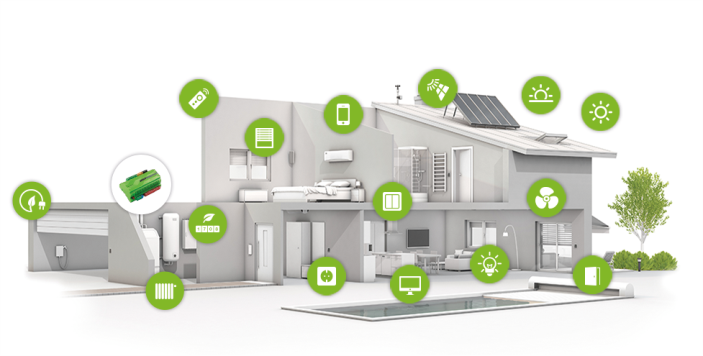Category:Building Standards: Difference between revisions
Siterunner (talk | contribs) No edit summary |
Siterunner (talk | contribs) No edit summary |
||
| (8 intermediate revisions by the same user not shown) | |||
| Line 1: | Line 1: | ||
<addthis /> | <addthis /> | ||
[[File:Featured.png]] | |||
::<big><big>At Home and At Work, Private & Public Design & Building in Changing Times</big></big> | |||
[[File:Smart home-energy-3d.png]] | [[File:Smart home-energy-3d.png]] | ||
[https://www.archdaily.com/908186/the-aia-toolkit-for-architects-in-the-era-of-climate-change '''The AIA Toolkit for Architects in the Era of Climate Change'''] | |||
<big>'''[[Net Zero Energy Policy]]'''</big> | |||
[https://www.yaleclimateconnections.org/2018/12/net-zero-buildings-are-catching-on/ '''Net-Zero Buildings'''] | |||
○ | |||
Special Issue: [https://www.mdpi.com/journal/buildings/special_issues/eco_tower '''Eco-Towers: Technology, Sustainability, and Resilience''' (2015)] | |||
<big>'''Green Retrofitting Skyscrapers'''</big> | |||
Big City? Big Job to Turn Old Oil/Gas Intensive Buildings to Green Clean Energy Efficient Buildings | |||
* https://www.mdpi.com/2075-5309/4/4/683 | |||
''This 2014 [https://www.mdpi.com/2075-5309/4/4/683 Urban Planning / Public Affairs] paper investigates innovative trends, practices and goals of tall building retrofits while illustrating green design techniques and implementation strategies. The existing building stock is substantially large and represents one of the biggest opportunities to reduce energy waste and curb air pollution and global warming. In terms of tall buildings, many will benefit from retrofits. There are long lists of inefficient all-glass curtain walls, initially promoted by the modernist movement, that are due to retrofit. The all-glass curtain wall buildings rely on artificial ventilation, cooling and heating, and suffer from poor insulation, which collectively make them energy hogs. Recent practices indicate that green retrofit has helped older buildings to increase energy efficiency, optimize building performance, increase tenants’ satisfaction and boost economic return while reducing greenhouse gas emission. As such, renovating older buildings could be “greener” than destroying them and rebuilding new ones. While some demolition and replacement may remain a necessity to meet contemporary needs, there are significant opportunities to reduce carbon emission and improve existing buildings’ performance by retrofitting them rather than constructing new ones. Practical insight indicates that the confluence of economic and environmental goals is increasingly at the heart of sustainable planning and design.'' | |||
Keywords: | |||
skyscrapers; sustainable design; green retrofit; energy efficiency; building’s performance; holistic approach; leadership in energy and environmental design | |||
~ | |||
[[Category:Air Quality]] | |||
[[Category:Climate Change]] | |||
[[Category:Climate Policy]] | |||
[[Category:City Governments]] | |||
[[Category:City-County Governments]] | |||
[[Category:Education]] | |||
[[Category:Energy]] | |||
[[Category:Energy Policy]] | |||
[[Category:Energy Saving]] | |||
[[Category:Green Business]] | |||
[[Category:Green Politics]] | |||
[[Category:LEED]] | |||
[[Category:Pollution]] | |||
[[Category:Renewable Energy]] | |||
[[Category:Sustainability Policies]] | [[Category:Sustainability Policies]] | ||
Latest revision as of 14:37, 18 February 2023
<addthis />
- At Home and At Work, Private & Public Design & Building in Changing Times
The AIA Toolkit for Architects in the Era of Climate Change
○
Special Issue: Eco-Towers: Technology, Sustainability, and Resilience (2015)
Green Retrofitting Skyscrapers
Big City? Big Job to Turn Old Oil/Gas Intensive Buildings to Green Clean Energy Efficient Buildings
This 2014 Urban Planning / Public Affairs paper investigates innovative trends, practices and goals of tall building retrofits while illustrating green design techniques and implementation strategies. The existing building stock is substantially large and represents one of the biggest opportunities to reduce energy waste and curb air pollution and global warming. In terms of tall buildings, many will benefit from retrofits. There are long lists of inefficient all-glass curtain walls, initially promoted by the modernist movement, that are due to retrofit. The all-glass curtain wall buildings rely on artificial ventilation, cooling and heating, and suffer from poor insulation, which collectively make them energy hogs. Recent practices indicate that green retrofit has helped older buildings to increase energy efficiency, optimize building performance, increase tenants’ satisfaction and boost economic return while reducing greenhouse gas emission. As such, renovating older buildings could be “greener” than destroying them and rebuilding new ones. While some demolition and replacement may remain a necessity to meet contemporary needs, there are significant opportunities to reduce carbon emission and improve existing buildings’ performance by retrofitting them rather than constructing new ones. Practical insight indicates that the confluence of economic and environmental goals is increasingly at the heart of sustainable planning and design.
Keywords:
skyscrapers; sustainable design; green retrofit; energy efficiency; building’s performance; holistic approach; leadership in energy and environmental design
~
Subcategories
This category has the following 5 subcategories, out of 5 total.
A
E
I
S
Pages in category "Building Standards"
The following 101 pages are in this category, out of 101 total.
A
- Ada County, ID Green Building Standards
- Alameda County, CA County Buildings must be LEED Certified
- Alameda County, CA Green Building Ordinance
- American Society of Civil Engineers - The Role of the Civil Engineer in Sustainable Development
- Anacortes, WA Promoting the Use of LEED Standards in Construction
- Arlington, MA Requires Silver LEED Rating for All New Construction and Renovations
- Atlanta, GA LEED Building Design
- Austin, TX Zero Energy Capable Homes
B
- Bellingham, WA Promoting Use of LEED Standards in Construction
- Berea College, KY Ecological Design
- Boise, ID Green Building Standards in City Owned Buildings
- Boston University, MA Green Construction
- Brisbane, CA Green Building Requirements
- Burbank Unified School District, CA Sustainable Design Standards
C
- California Communities Stringent Green Building Policies
- Carnegie Mellon University, PA Living Roofs
- Chandler, AZ Adopting the Green Building Program
- Charlottesville, VA City Hall and Police Building Green Roof Project
- Chartwell School, CA Green Campus Features
- Chicago, IL Green Homes Program
- Chicago, IL Green Roof Grants Program
- Climate Desk
- Colorado State University Green Construction
- Connecticut College Green Building Policy
D
E
F
G
I
K
L
- Lake County, FL Green Building Standards
- Las Vegas, NV Adopting a Green Building Program
- Little Rock, AR Sustainable Practices for City-Owned Buildings
- Long Beach, CA Green Building Policy for Municipal Buildings
- Longwood University, VA Energy Sustainability Initiatives
- Los Angeles School District, CA High Performance Schools
- Los Angeles, CA Green Building Ordinance
M
- Macalester College, MN EcoHouse
- Madison, WI Requiring New City Buildings to Be Certified as Green Buildings
- Marin County, CA Energy Efficiency Standards for Dwellings
- Matanuska-Susitna Borough, AK In Support of a Sustainable Building Policy
- Melbourne, Australia Building Improvement Partnership Program
- Monte Sereno, CA Green Building Program
- Multnomah County, OR Green Building Policy
N
P
R
S
- San Diego, CA Sustainable Building Policy
- San Jose, CA Green Building
- San Mateo County, CA Sustainable Building Policy
- Santa Cruz, CA Green Building Working Group
- Santa Rosa, CA Accepting the Green Building Implementation Plan
- Santa Rosa, CA Creation of a Green Building Policy - Council Advisory Committee
- Sarasota County, FL Clean Energy Building Standards
- Sarasota County, FL Green Building Standards
- Scottsdale, AZ Green Building Program
- Sea-Level Rise
- Seattle, WA Green Building Task Force
- Seattle, WA Sustainable Building Policy
- Small House Movement
- St Louis, MO Sustainable Building Ordinance
- Stanford University, CA Green Dorm
- Starkville, MS Sustainability and LEEDS Policy
- Sustainable Buildings Policy, Georgia Institute of Technology
- Syracuse, NY Developing a Sustainable Building Policy
U
Media in category "Building Standards"
The following 43 files are in this category, out of 43 total.
- About website of The Invading Sea.png 800 × 343; 126 KB
- Accessory Dwelling Units - Images varied-2.png 607 × 300; 329 KB
- ADU 4-Tampa Case Study.png 682 × 806; 905 KB
- Are Tiny Homes a Solution to the Housing Crisis.png 443 × 336; 286 KB
- Are Tiny Homes a Solution.png 408 × 303; 93 KB
- Barrier island hubris 6-29-2021.jpg 490 × 635; 111 KB
- BMW wireless-charging.gif 640 × 356; 3.19 MB
- Boxabl - The Casita.png 618 × 539; 246 KB
- C40logo.png 233 × 87; 8 KB
- Catching the sun film.jpg 705 × 988; 366 KB
- Cheapest electricity in history re carbon brief - january 2023.png 568 × 480; 161 KB
- Climate action isn't 'bunny hugging' says Boris.jpg 800 × 264; 95 KB
- Climate Desk.jpg 390 × 226; 21 KB
- Coastal Connecticut sea level rise.png 480 × 549; 396 KB
- Environmental Justice and Environmental Law.jpg 274 × 668; 108 KB
- ERoadArlanda.png 800 × 495; 539 KB
- Flooding in South Florida.png 640 × 742; 293 KB
- Florida and climate change denial.png 640 × 192; 46 KB
- Going Green 2019.jpg 800 × 356; 15 KB
- Green Best Practices 1.png 515 × 65; 5 KB
- Greenland ice sheet set to raise sea level significantly.png 640 × 340; 223 KB
- Hurricane-Proofing-Home-2024-Miami-Florida.png 658 × 600; 652 KB
- Hurricanes - Typhoons via NASA data.png 764 × 924; 1,022 KB
- Invading Seas warning 2024.png 757 × 587; 669 KB
- Jacinda - New Zealand.jpg 533 × 523; 64 KB
- Keep going and going.png 354 × 184; 10 KB
- Mangroves regulate flooding - EDF.png 568 × 473; 328 KB
- Moving to Higher Ground.png 568 × 473; 307 KB
- Net Zero 1.png 800 × 373; 368 KB
- Net Zero 2.png 800 × 255; 331 KB
- Net Zero Schools.png 640 × 83; 70 KB
- Planetcitizens-336x336.png 336 × 336; 206 KB
- Race-to-Zero-US-Energy-Dept.jpg 575 × 800; 175 KB
- Sea levels surge along southern US coast.png 640 × 441; 69 KB
- Smart home-energy-3d.png 703 × 356; 244 KB
- SmartHomeOntology.jpg 772 × 561; 154 KB
- Solar power car battery charger 2017.png 704 × 222; 96 KB
- South Florida Floodwaters.png 640 × 449; 251 KB
- Speed and Scale - Tracking.png 643 × 249; 30 KB
- Threat Environment - TBay Times Series on Climate Change Impacts.png 556 × 864; 166 KB
- Vertical Forest - 2.png 494 × 621; 573 KB
- Vertical Forest Milan.jpg 731 × 543; 147 KB



































